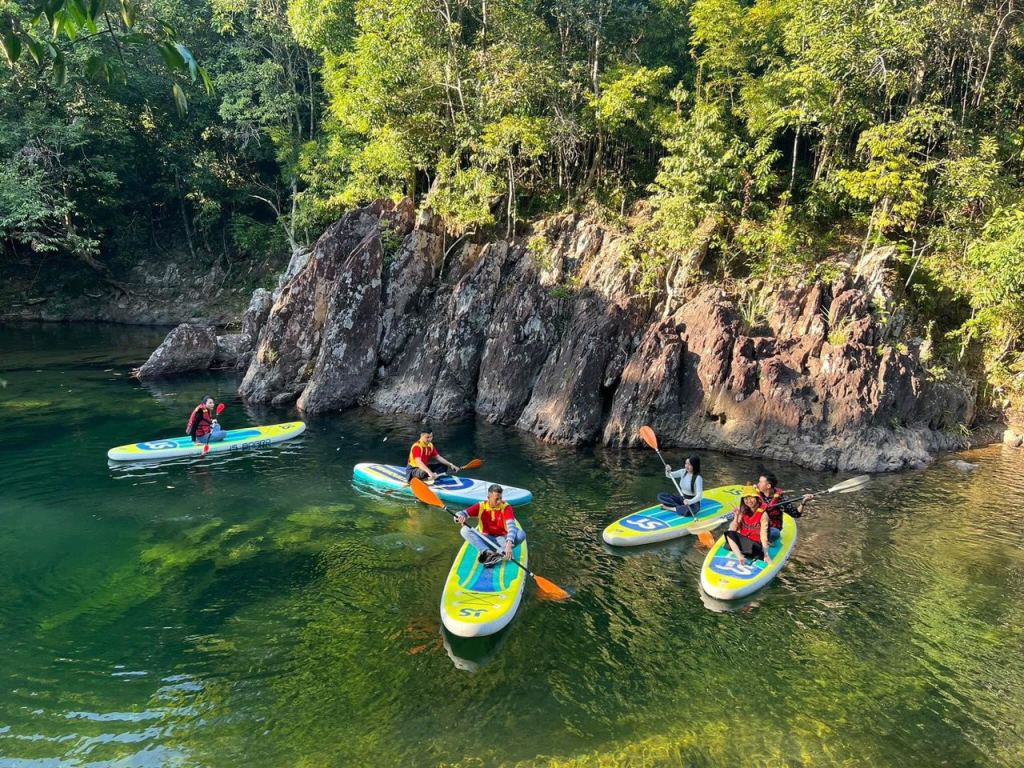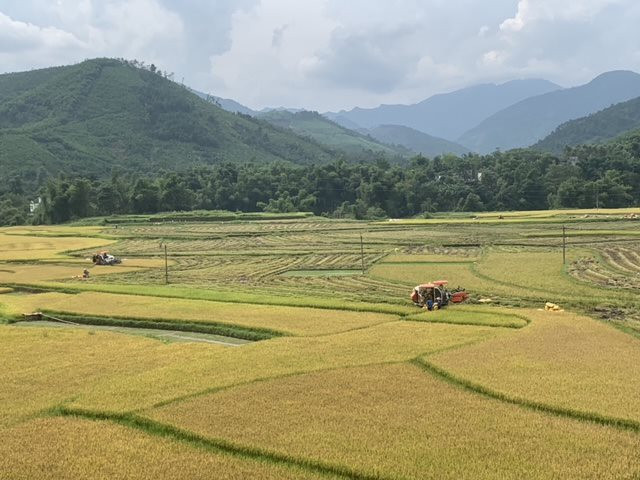Quang Ninh has dedicated resources to maximise its potential for developing tourism, particularly cultural and community-based tourism.

Tourists enjoy their holiday at an ecotourism site, Ha Long city's Am Vap Farm.
Quang Ninh, home to more than 20 ethnic minority groups, is well-known among tourists not only for its magnificent natural scenery but also for its distinct local cultures.
Investing in cultural values and ensuring that local communities benefit from cultural tourism development is a direction toward sustainable tourism.
Quang Ninh has successfully initiated this approach with a model of cultural tourism in Yen Duc village in Dong Trieu township.
Not only Yen Duc, Quang Ninh boasts many villages with great potential for culture tourism. Many locations have been included in the province's community tourism development project and others of localities in Ha Long city and Quang Yen, Dong Trieu, Binh Lieu, Ba Che, Hai Ha, and Mong Cai districts, and coastal and island areas of Van Don and Co To districts.
The traditional cultural values of ethnic minorities in Ky Thuong mountainous commune in Ha Long city have been exploited in parallel with ecological values, becoming unique tourism products.
Thanh Y Dao cultural conservation area in Bang Ca commune is also an attractive cultural tourism destination in Ha Long city. Recently, several travel firms have organsised tours to the site. Tourists, especially international visitors, are very excited and enjoy these activities.
Exploiting cultural resources well to serve tourism development has become a right direction for Binh Lieu district, thus gradually forming strong tourism products such as eco-tourism, community tourism, and adventure tourism. Some homestays in Binh Lieu's ethnic minority areas such as Song Mooc, A Dao and Hoa So have become popular places to stay for tours.

Ripen rice season, or yellow season, in Binh Lieu mountainous district
Among the four tourism pillars of Quang Ninh, community-based tourism plays an important role in promoting socio-economic development of the locality, especially in mountainous, remote and disadvantaged areas, contributing to preserving and upholding the cultural values of local ethnic groups.
By Ha Phong